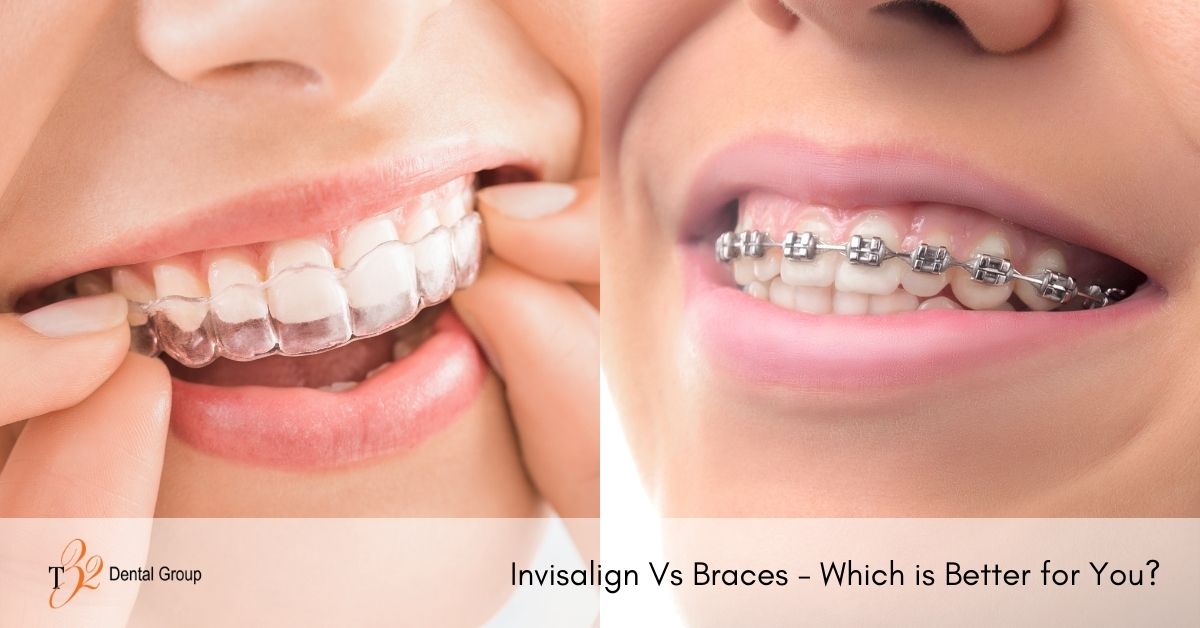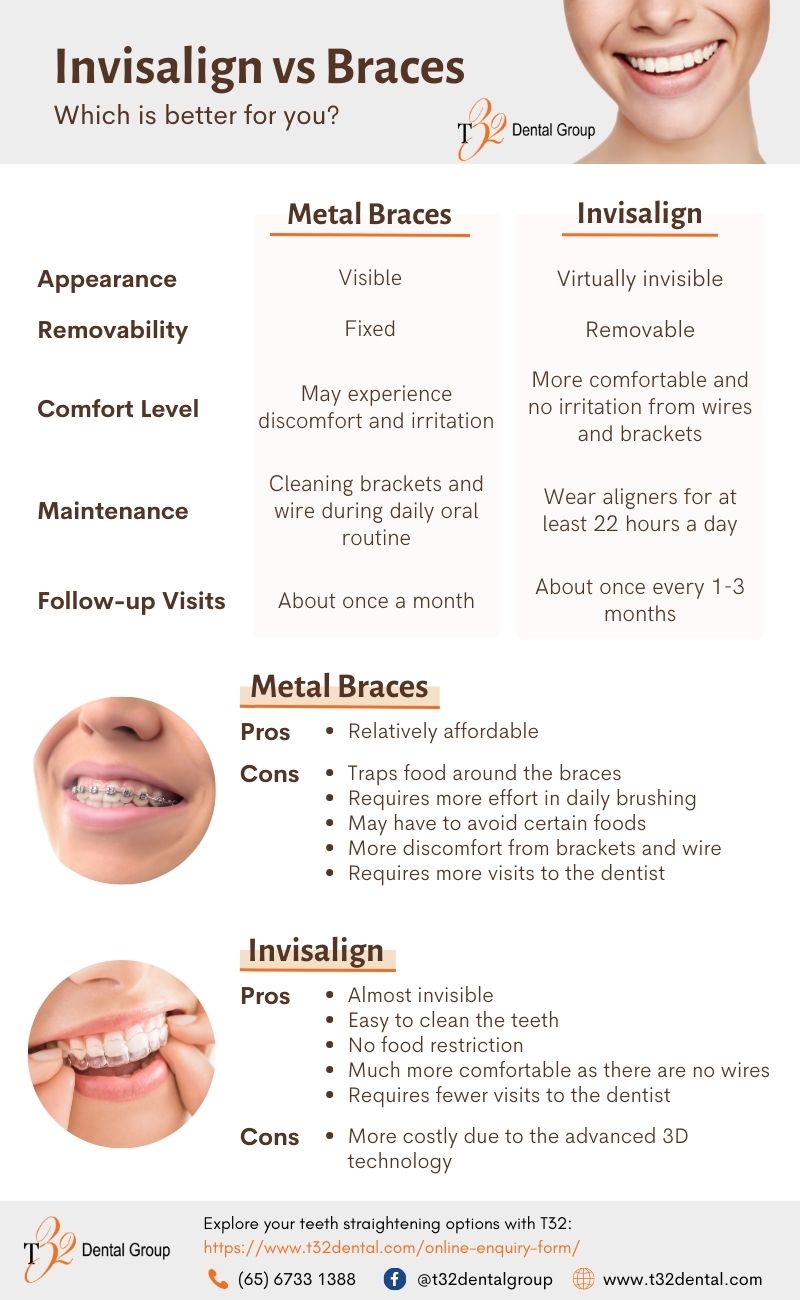

If you are considering straightening your teeth, you have the choice between metal braces and clear aligners such as Invisalign. There are many differences between the two types of orthodontic treatment, and choosing the most suitable treatment for yourself will depend on several factors such as lifestyle needs, price, comfort and convenience.
If you are struggling to decide, we are here to help you. In this guide, we will explore the differences between each type of treatment to help you figure out what is best for you.
Straightening Teeth with Metal Braces
Traditional braces treatment uses a set of metal (or ceramic) brackets and a metal wire. The brackets are attached to each tooth and strung together by a metal arch wire. Throughout the treatment period, the orthodontist will tighten and adjust each tooth to gradually move to its desired position.
The two most common types of braces are metal braces and ceramic braces. There are other types such as self-ligating braces and lingual braces. Depending on the patient’s teeth condition and lifestyle needs, the dentist will advise on the suitable type of braces.
Pros & Cons of Metal Braces
| Pros | |
| Cons |
Straightening Teeth with Invisalign
Invisalign treatment uses clear aligners to straighten the teeth. Advanced 3D technology is used to customise a series of clear aligners for each and every individual.
By wearing and changing the aligners according to the treatment plan, they will gradually move the teeth to the desired positions. Unlike braces, Invisalign does not require any wire or brackets to straighten the teeth.
Pros & Cons of Invisalign
| Pros | |
| Cons |
Comparing Braces and Invisalign
| Braces | Invisalign | |
|---|---|---|
| Appearance | Visible | Virtually invisible |
| Removability | Fixed | Removable |
| Comfort Level | May experience discomfort and irritation | More comfortable and no irritation from wires and brackets |
| Maintenance | Cleaning brackets and wire during daily oral routine | Wear aligners for at least 22 hours a day |
| Follow-up Visits | About once a month | About once every 1-3 months |
Appearance
Braces is visible while Invisalign is virtually invisible.
Traditional metal braces are noticeable due to the brackets and wires. On the other hand, Invisalign clear aligners are virtually invisible.
Invisalign may be a better choice for those who are more conscious about their appearance, or those who require a less visible treatment due to the nature of their work.
Removability
Braces is fixed while Invisalign is removable.
Patients with braces will not be able to remove them during treatment.
On the other hand, Invisalign aligners can be removed during eating, brushing and special occasions.
Comfort Level
Invisalign is more comfortable than braces.
Traditional metal braces can cause discomfort as they may cause scratches or ulcers, especially at the start. When they are adjusted every month, the braces adjustment can also cause some soreness of the teeth.
Invisalign clear aligners are smooth and comfortable, and cause little or no irritation to the cheeks and gums. They apply constant and gentle forces to the teeth throughout the treatment, making them much more comfortable compared to fixed braces.
Maintenance
Both braces and Invisalign aligners will require daily cleaning.
For patients with braces, more effort will be required during the daily brushing and flossing, as braces can trap food easily. If teeth are not cleaned well, there is a higher risk of tooth decay and gum disease.
On the other hand, Invisalign patients can easily remove the aligners and brush their teeth as usual. It is much easier to keep the teeth clean with Invisalign. Patients only need to be committed to wearing their aligners for about 22 hours a day.
Follow-up Visits
Frequent follow up visits are required for patients with fixed braces. Fewer visits are required for Invisalign
Braces patients will need to go back to the clinic about once a month to get their braces adjusted.
Invisalign patients require fewer visits to the dentist, as long as they are wearing their Invisalign aligners as instructed.
Invisalign or Braces – Which one to Choose?
When choosing between Invisalign and braces, do weigh the pros and cons of each treatment to see which is suitable for you. Consult a dental professional to understand your condition better, so that you can make the best decision for yourself.
Explore Your Teeth Straightening Options at T32 Dental
At T32 Dental, we put our hearts into your smile. As a Diamond Invisalign Provider with a team of experienced orthodontists, we have helped many patients achieve the smile that they deserve with braces and Invisalign.
Straightening your teeth is a remarkable journey and one that you want to be comfortable with. To find out more about teeth straightening options at T32 Dental, please contact us for a consultation.
Reviewed by Dr Boey Pui Yunn
